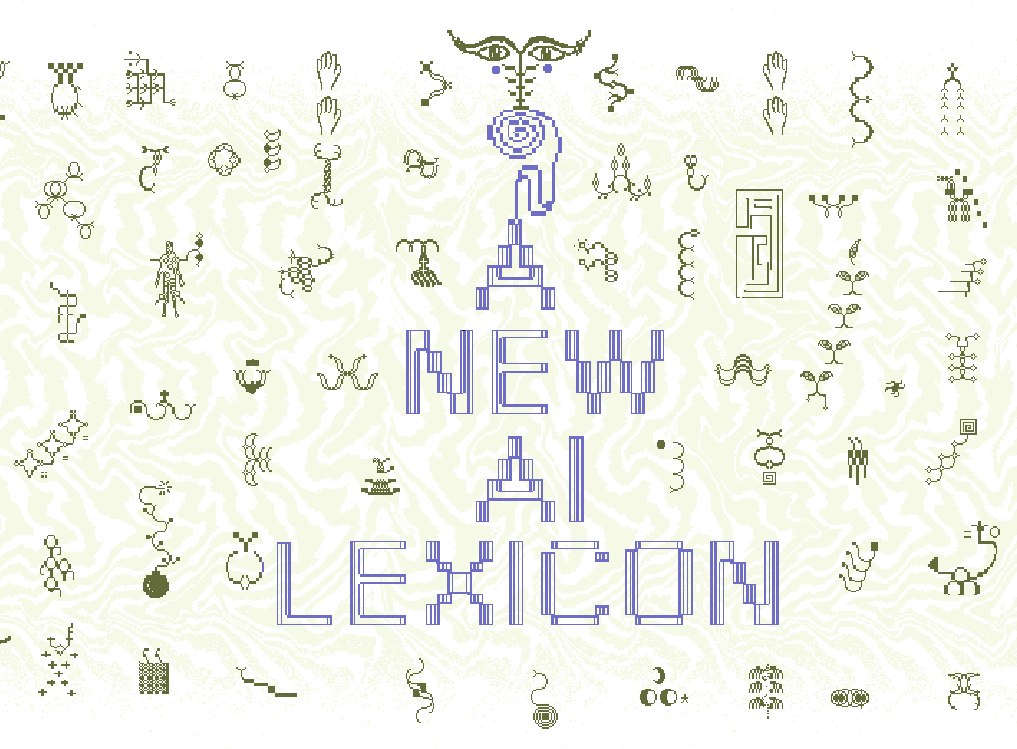Illustration by Somnath Bhatt
By Noopur Raval and Amba Kak
In January 2021, we launched ‘A New AI Lexicon:’ a call for contributions to generate alternate narratives, positionalities, and understandings to the better known and widely circulated ways of talking about AI. In our introductory call, we identified the contours and politics of the critical AI space, as well as the silences and erasures they end up producing. We were hopeful yet uncertain about whether or who this call would speak to. We began a process of reimagining AI futures by rearticulating the scope and boundaries of critical AI. We are by no means the only group of scholars looking for and pushing the boundaries of AI talk and buzzwords, and are grateful that so many activists, practitioners, and scholars joined our call. We received over 130 pitches for contributions and are truly grateful for and overwhelmed by the interest. After several months of communing and conversing with the authors, we are thrilled to publish the first set of essays as a part of ‘A New AI Lexicon’ starting this week.
From the submissions we received, we selected over 40 essays, all centered around keywords new and old. As we publish the essays, we hope to show how multiple essays by different authors convene under the same keyword but speak to it in vastly different ways; how familiar buzzwords in the discourse can be reinterpreted and re-tooled towards different ends; and how new frames can redirect our attention towards underexplored contexts and geographies.
Our inaugural set of essays include CARE (“Care as a Tool, Care as a Weapon”) by Hannah Zeavin and MAINTENANCE (“Maintenance as Care, Respect, and Guardianship”) by Anna and Kelly Pendergrast. Zeavin’s ‘Care’ essay draws on her recently published book The Distance Cure: a history of telepathy (MIT Press, 2021) to argue that “our crisis of care is not that the algorithms are coming, or have come, but how algorithms for “care” are deployed in service of predictive control — the more one uses a platform for care, the more minable data there is.” Weaving in examples from her long term research, Zeavin examines the design and logics of algorithmic care that transform what we otherwise identify as a “happy object” into a weapon. Complementing Hannah’s work, Anna and Kelly Pendergrast’s ‘Maintenance’ essay begins with the provocation: “To bring an AI system into the world is also to bring about a responsibility for its care.” Throughout their piece, they aim to (re)introduce maintenance as ethics and praxis in the AI vernacular. Their essay implicitly engages with calls for accountability (both in AI and elsewhere), as well as calls to center care in AI design and offers a situated agenda for careful AI. What is inherently radical about centering maintenance is perhaps the embrace of a different, slower temporality that it may infuse within AI or broadly tech development.
In the coming weeks, we will feature essays on AI nationalism, algorithmic discrimination, open data, how algorithmic system can produce dissent, and many more. We will be sharing the essay series here and on Twitter.
